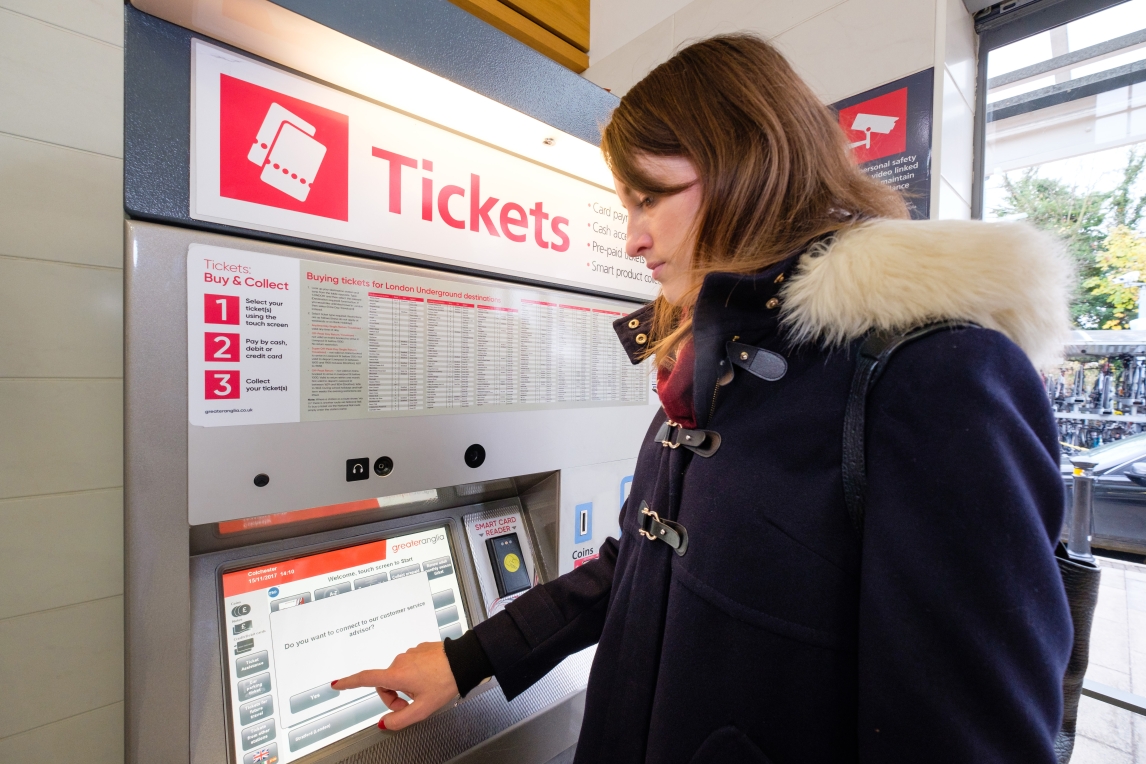Published on: Wednesday, 30 January 2019
Last updated: Wednesday, 30 January 2019
Over 80,000 rail users in Essex, Norfolk, Suffolk, Cambridgeshire and Hertfordshire received help from a ‘virtual ticket agent’ last year.
Train operator, Greater Anglia, pioneered the roll-out of a new kind of ticket machine, which can connect people to remote help from a real person, 24/7.
The machines have been a hit with passengers, with 84,708 people using them to ask for help buying a train ticket and other information.
Greater Anglia is the first train operator in England to roll out the ViTA “virtual ticket agents” across all its existing ticket machines, so that passengers can connect to a real person - via an audio link - who can offer help whilst they buy their train tickets.
Lynsey Flack, Greater Anglia’s Head of Customer Service, commented: “I’m pleased that this innovative customer service development has helped make life a little easier for so many people when travelling with us.
“At some of our more rural stations it’s like giving the station a ticket office that’s open all day, every day, which is a great benefit to people in the surrounding communities.
“We know that customers sometimes feel apprehensive about buying tickets from a machine as they are unsure of how it works or which is the best ticket for their journey, so being able to connect straight to a friendly voice who can help is really improving the service we offer.”
196 Scheidt & Bachmann ticket machines at stations across the Greater Anglia network have been upgraded with a speaker and microphone, together with software and application updates and connected to a central in-house call centre, staffed by 13 Greater Anglia ticket sellers, which operates 24 hours a day, seven days a week.
For anyone who needs help on how to use the ticket machine, or is unsure of which ticket to buy, they simply press the ‘Ticket Assistance’ button on the machine to be connected to a call centre agent.
A two-way audio connection will be established so that the customer and ticket agent can talk. The ticket agent can then give advice and information, or if required, can remotely control the machine on behalf of the customer (with the exception of the card payment screen).



